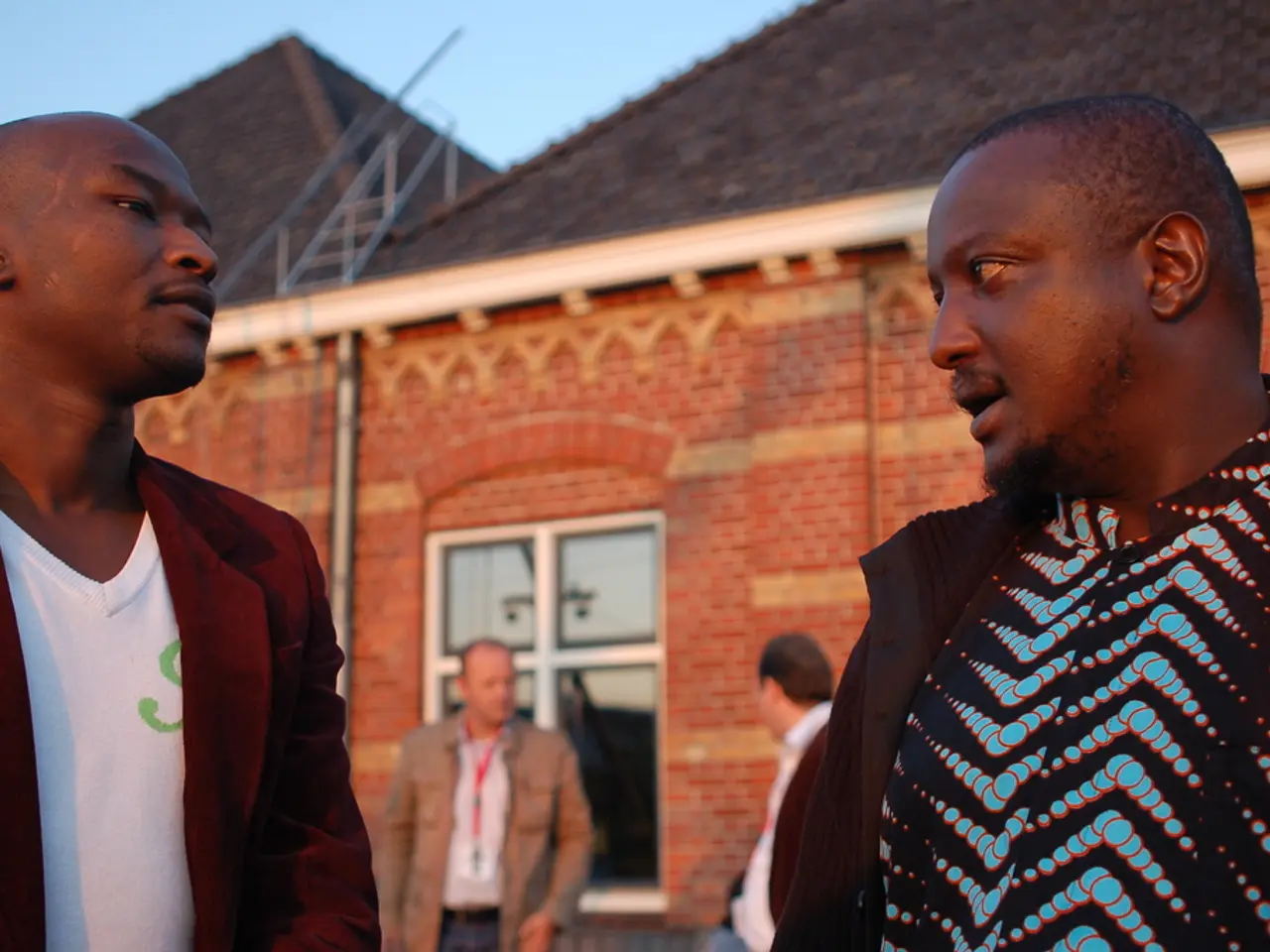Emerging Markets: Why Africa Shouldn't Be Overlooked
In the dynamic landscape of emerging markets, Africa stands out with a unique approach to digital economy growth. This strategy, centred on continental integration, inclusive digital infrastructure development, green investments, and leveraging digital trade frameworks like the African Continental Free Trade Area (AfCFTA), sets Africa apart from other emerging markets such as Latin America and Southeast Asia.
Africa's Digital Trade Protocol under AfCFTA aims to harmonize digital regulations, enable cross-border data flows, and link African markets into global digital value chains. This regional integration is expected to significantly boost income and reduce poverty by facilitating seamless digital trade across 54 countries, a scale and coordination level not present in Latin America or Southeast Asia[1].
Massive investments are underway in broadband, cloud, subsea cables, and 5G infrastructure, alongside training 500,000 ICT professionals with gender parity commitments. This approach emphasizes not only urban but also rural inclusion and aims to overcome Africa’s connectivity and energy limitations[1].
Africa's strategy links digital growth strongly with green energy expansion to ensure sustainable, resilient development, mobilizing blended finance and public-private partnerships to scale renewables particularly in underdeveloped regions. This dual focus on digital and green growth is distinctive compared to other emerging markets where digital acceleration and sustainability tend to be pursued more separately[1].
Africa is actively trying to close the AI equity gap by fostering policies suited to its demographic and development context. Recent global initiatives led by South Africa’s 2025 G20 presidency are shifting the focus from global AI frameworks to Africa-specific capacity building, ethical governance, and private sector engagement, highlighting a tailored digital transformation path[3].
Programs like the World Bank’s MADE Alliance focus on integrating smallholder farmers and underserved populations into the digital economy, emphasizing agriculture and essential services connectivity unique to Africa’s development profile[5].
Meanwhile, in the vibrant continent of Africa, Anton Volianskyi, co-founder and CEO of Jiji, an international online marketplace, is leading the charge. Jiji has expanded to 8 countries and serves over 1 million daily users across the continent[2].
Africa's digital economy is also marked by a young population, with a median age of 19.3 years, making it the continent with the youngest population among emerging markets. The number of social media users in Africa is expected to reach 563.77 million by 2029[6].
However, Africa has a very uneven digital infrastructure, with many regions still relying on outdated 2G networks, especially in rural areas. Logistics and payments pose major problems, leading to failed deliveries, delays, and rising costs. Yet, Africa leads globally in mobile-based financial services, with over 1.1 billion active wallets[7].
Looking ahead, Africa's digital economy is projected to have over 1.1 billion internet users by 2029, with 90% connecting through smartphones[8]. Early bird tickets for Moonshot, an event by Jiji's website, are currently 20% off. Moonshot is a gathering of top founders, creatives, and tech leaders in Africa for keynotes, mixers, and future-forward ideas[9].
In contrast, Latin America’s digital economy growth focuses more on improving existing urban infrastructure and e-commerce expansion within relatively more mature markets, while Southeast Asia’s rapid transformation hinges on strong tech adoption, digital payments, and regional economic corridors but lacks a continent-wide integrated trade framework comparable to AfCFTA[4].
Sources:
[1] African Development Bank Group. (2021). Africa's Digital Transformation: Towards a Master Plan. Retrieved from https://www.afdb.org/en/knowledge/digital-transformation-towards-master-plan
[2] Jiji. (n.d.). About Us. Retrieved from https://www.jiji.ng/about
[3] African Union. (2021). Africa’s Digital Transformation Strategy for the African Continent. Retrieved from https://au.int/en/sites/default/files/documents/45563-doc-au_strategy_africa_digital_transformation_2021_en.pdf
[4] World Economic Forum. (2021). Africa's Digital Economy: A New Era of Opportunity. Retrieved from https://www.weforum.org/agenda/2021/02/africa-digital-economy-opportunity/
[5] World Bank Group. (2021). MADE Alliance. Retrieved from https://www.madealliance.org/
[6] Statista. (2021). Number of social media users in Africa from 2017 to 2029. Retrieved from https://www.statista.com/statistics/1106031/number-of-social-media-users-in-africa/
[7] GSMA. (2021). State of Mobile Money Report 2021. Retrieved from https://www.gsma.com/mobilefordevelopment/wp-content/uploads/2021/06/GSMA-State-of-Mobile-Money-Report-2021.pdf
[8] DataReportal. (2021). Digital 2021: Africa. Retrieved from https://datareportal.com/reports/2021-02-10-digital-2021-africa
[9] Moonshot. (n.d.). About. Retrieved from https://moonshot.jiji.ng/about
- The African Continental Free Trade Area (AfCFTA) aims to harmonize digital regulations in Africa, linking African markets into global digital value chains.
- Africa's digital transformation strategy focuses on continental integration, green investments, and leveraging digital trade frameworks like AfCFTA.
- Massive investments are being made in Africa's broadband, cloud, subsea cables, and 5G infrastructure, with a focus on rural inclusion.
- Africa's digital economy growth is distinctive due to its strong link with green energy expansion for sustainable development.
- Africa is closing the AI equity gap by fostering policies tailored to its demographic and development context.
- Programs like the World Bank’s MADE Alliance aim to integrate smallholder farmers and underserved populations into the digital economy, emphasizing agriculture and essential services connectivity.
- Anton Volianskyi, co-founder and CEO of Jiji, an international online marketplace, is leading the charge in Africa's digital economy, with Jiji serving over 1 million daily users across 8 countries.
- Africa has a young population with a median age of 19.3 years, making it the continent with the youngest population among emerging markets.
- Africa leads globally in mobile-based financial services, with over 1.1 billion active wallets, despite having a very uneven digital infrastructure.




